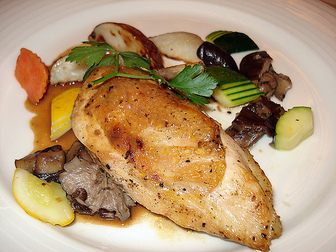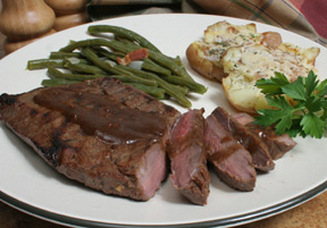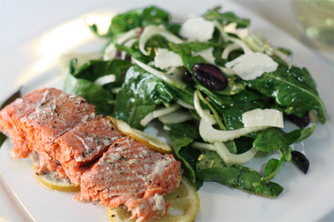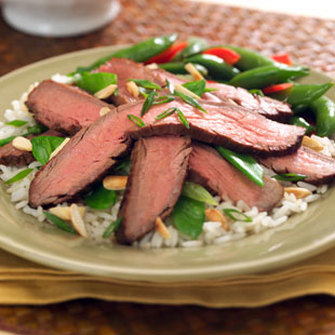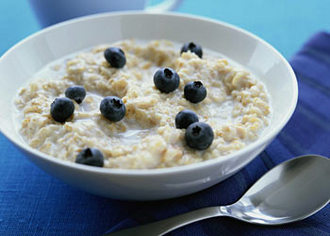Eat More Calories
Low Calorie diets (below 1200 calories a day), do more harm than good. A low caloric intake only slows your metabolic rate and forces your body to store calories as fat. Eat a good ratio of protein, fats and carbs so you are not hungry. Keep in mind the scale does not show water weight, muscle gain or fat loss. Go by how your clothes fit, how your body looks in the mirror and your measurements.
Get rid of fat calories
Calories from fat are easily stored as body fat; where as calories from other foods have to be converted to fat, a process that burns calories. Stick to low fat and nonfat choices, and watch for hidden fats in processed foods. Avoid Saturated fats, the body more readily stores saturated fats. Unsaturated fats, such as olive oil are better for you!
Natural foods are better
Natural, unprocessed foods are used more efficiently by the body and are less likely to be stored as body fat. Choose fresh fruits, veggies, whole grains, and other complex carbs. Natural, complex carbs are needed to make and replenish muscle glycogen, the carb stored in the muscle and liver and used to supply energy for exercise and activity. If you limit your intake of refined products to only a few times a week, you’ll notice a huge difference in you shape, definition and overall energy level.
Moderate carbohydrate intake
Carbs are totally essential for exercises and must be included in your diets; but if you want to speed up fat loss, you need to change your carb intake slightly. When you reduced carbs, your body has less glycogen to run on and is forced to burn fat instead. Here is what I suggest. Eat your starchy carbs, before 2pm. Then for your later meals eat protein and vegetables only.
Limit your sugars
If you eat sugar at once, the excess can be turned to body fat. Excess sugar triggers a surge of the hormone insulin, which activates enzymes that promote fat storage. Even natural sugars like fruit can trigger weight gain, if you eat them late in the day. Try to eat your fruits only in the morning and stick to blackberries, blueberries, strawberries and raspberries. These fruits are low in sugar and high in antioxidants. Also, avoid fat free cookies and cereal that are high in sugar.
Avoid Salt
Avoid salting foods and choose low sodium foods. Too much salt in your diet not only causes health problems, but causes you to retain water and prevents weight loss.
Eat enough protein
Protein is key to weight loss. Protein provides essential amino acids to repair and rebuild muscle tissues after your workouts. If your body doesn’t get enough protein, your body won’t recover from your workout, you won’t reach your goals and your body won’t get the proper nutrients it needs. Good sources of protein include: chicken, turkey, fish, lean red meats, eggs and egg whites, yogurt, tofu, beans, nuts and cottage cheese.
Drink plenty of water
Proper hydration is important for weight loss. I recommend drinking at least a half gallon of water a day, more if possible. Here are some of the benefits of drinking enough water:
Increased energy levels
Decreased appetite
Body fat breakdown for energy
Less fluid retention
Gets rid of toxins and wastes
Eat at least 4-5 times a day
Eating frequently throughout the day has several advantages. Not only will you burn more calories and have more energy, you’ll also absorb nutrients better, will be less tempted to snack on bad foods and you will speed up your metabolism. Think of your body as a burning machine. When you continually fuel your metabolism every few hours, you will burn more calories and will lose weight faster. If you skip meals and don’t eat enough food throughout the day, your body ends up storing the food as fat when you do finally eat.
Moderate Alcohol Use
Alcoholic beverages are loaded with sugary calories, which are easily converted to fat. Plus, when there’s alcohol in your system, the liver works overtime to process it and doesn’t have adequate time to burn fat. Excess alcohol can also cause numerous adverse health conditions. Bottom line-don’t drink a lot of alcohol if you have a goal to achieve.
Low Calorie diets (below 1200 calories a day), do more harm than good. A low caloric intake only slows your metabolic rate and forces your body to store calories as fat. Eat a good ratio of protein, fats and carbs so you are not hungry. Keep in mind the scale does not show water weight, muscle gain or fat loss. Go by how your clothes fit, how your body looks in the mirror and your measurements.
Get rid of fat calories
Calories from fat are easily stored as body fat; where as calories from other foods have to be converted to fat, a process that burns calories. Stick to low fat and nonfat choices, and watch for hidden fats in processed foods. Avoid Saturated fats, the body more readily stores saturated fats. Unsaturated fats, such as olive oil are better for you!
Natural foods are better
Natural, unprocessed foods are used more efficiently by the body and are less likely to be stored as body fat. Choose fresh fruits, veggies, whole grains, and other complex carbs. Natural, complex carbs are needed to make and replenish muscle glycogen, the carb stored in the muscle and liver and used to supply energy for exercise and activity. If you limit your intake of refined products to only a few times a week, you’ll notice a huge difference in you shape, definition and overall energy level.
Moderate carbohydrate intake
Carbs are totally essential for exercises and must be included in your diets; but if you want to speed up fat loss, you need to change your carb intake slightly. When you reduced carbs, your body has less glycogen to run on and is forced to burn fat instead. Here is what I suggest. Eat your starchy carbs, before 2pm. Then for your later meals eat protein and vegetables only.
Limit your sugars
If you eat sugar at once, the excess can be turned to body fat. Excess sugar triggers a surge of the hormone insulin, which activates enzymes that promote fat storage. Even natural sugars like fruit can trigger weight gain, if you eat them late in the day. Try to eat your fruits only in the morning and stick to blackberries, blueberries, strawberries and raspberries. These fruits are low in sugar and high in antioxidants. Also, avoid fat free cookies and cereal that are high in sugar.
Avoid Salt
Avoid salting foods and choose low sodium foods. Too much salt in your diet not only causes health problems, but causes you to retain water and prevents weight loss.
Eat enough protein
Protein is key to weight loss. Protein provides essential amino acids to repair and rebuild muscle tissues after your workouts. If your body doesn’t get enough protein, your body won’t recover from your workout, you won’t reach your goals and your body won’t get the proper nutrients it needs. Good sources of protein include: chicken, turkey, fish, lean red meats, eggs and egg whites, yogurt, tofu, beans, nuts and cottage cheese.
Drink plenty of water
Proper hydration is important for weight loss. I recommend drinking at least a half gallon of water a day, more if possible. Here are some of the benefits of drinking enough water:
Increased energy levels
Decreased appetite
Body fat breakdown for energy
Less fluid retention
Gets rid of toxins and wastes
Eat at least 4-5 times a day
Eating frequently throughout the day has several advantages. Not only will you burn more calories and have more energy, you’ll also absorb nutrients better, will be less tempted to snack on bad foods and you will speed up your metabolism. Think of your body as a burning machine. When you continually fuel your metabolism every few hours, you will burn more calories and will lose weight faster. If you skip meals and don’t eat enough food throughout the day, your body ends up storing the food as fat when you do finally eat.
Moderate Alcohol Use
Alcoholic beverages are loaded with sugary calories, which are easily converted to fat. Plus, when there’s alcohol in your system, the liver works overtime to process it and doesn’t have adequate time to burn fat. Excess alcohol can also cause numerous adverse health conditions. Bottom line-don’t drink a lot of alcohol if you have a goal to achieve.

